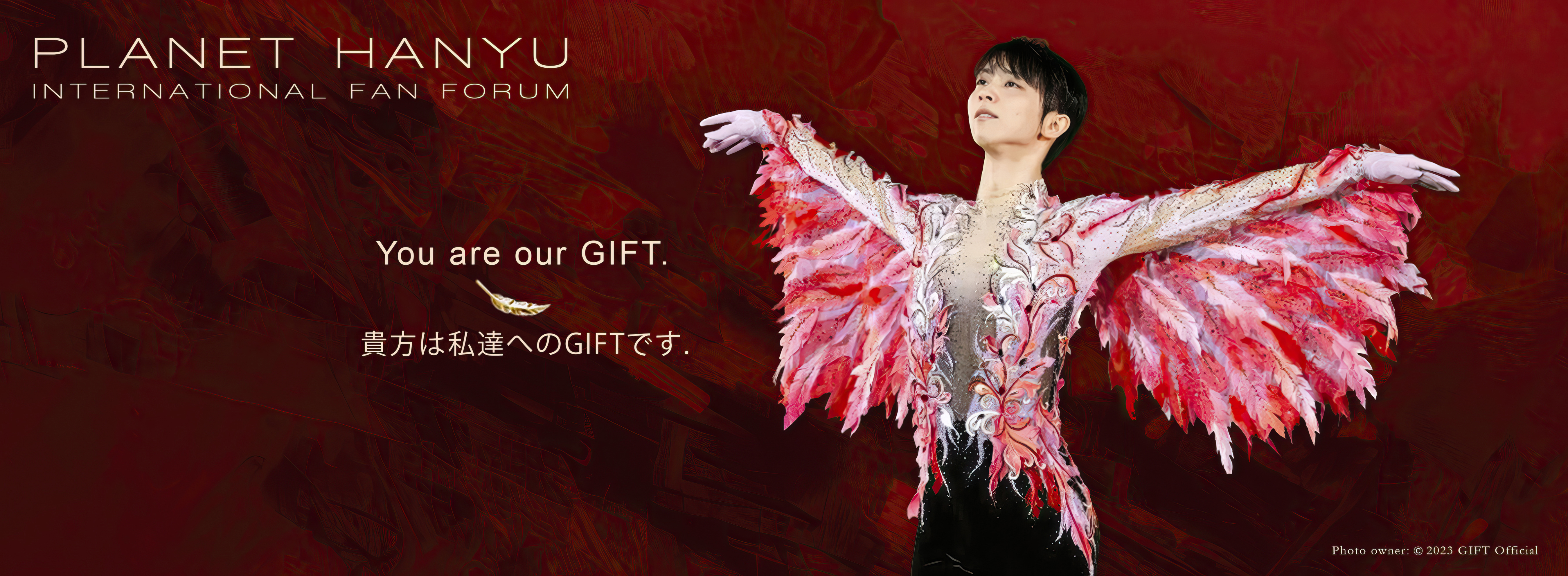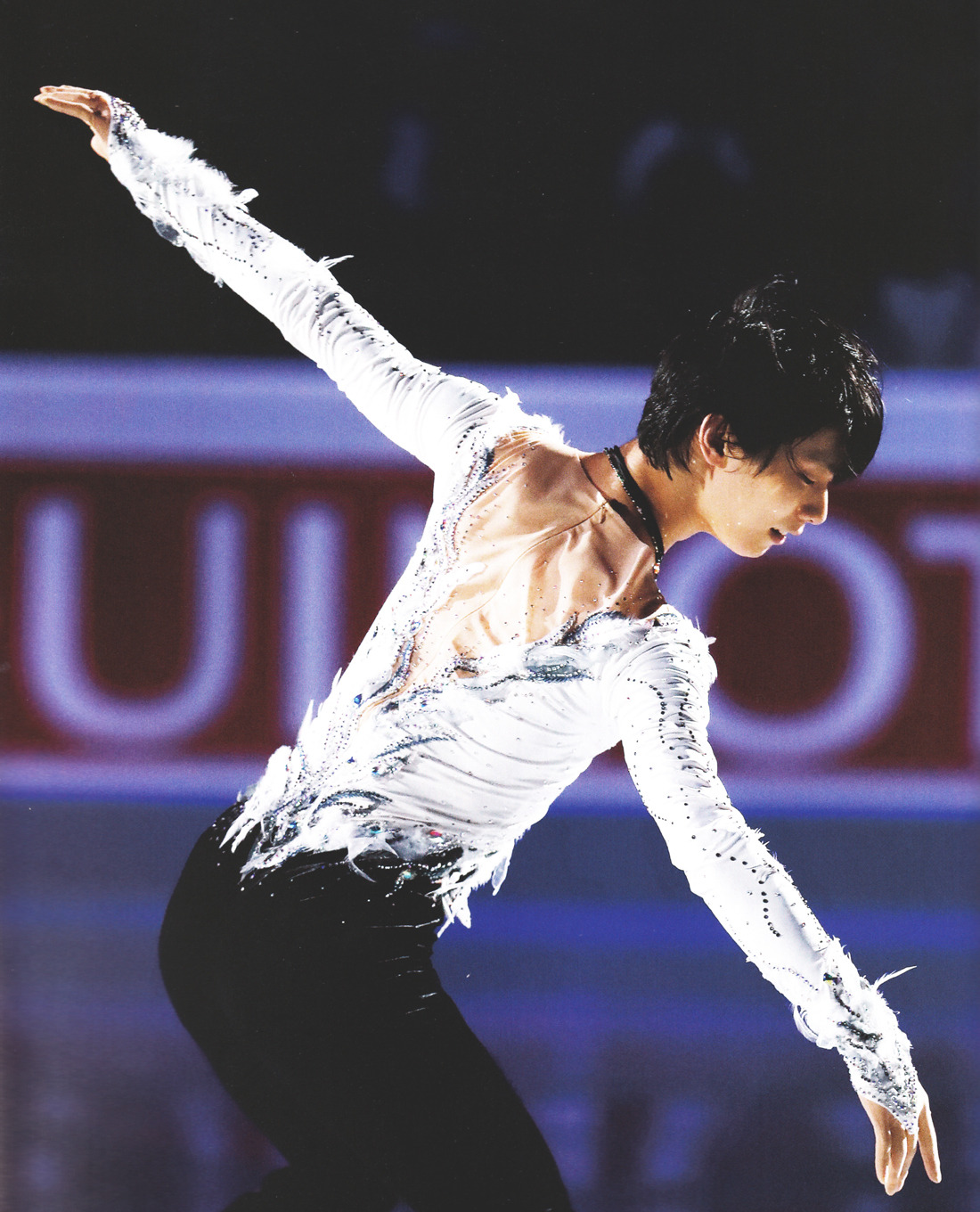https://www.miaopai.com/show/tVpqLizpru6UKn0QYj0gwnVecqPzW7GuDqswgw__.htm
Zhao Hong Bo, along with his wife Shen Xue, is the 2010 Olympic champion and 2002&2006 Olympic bronze medalist for Pairs figure skating. Currently he is the head coach for Sui/Han and Yu/Zhang at Harbin skating club.
This interview where he talked a little about Hanyu had sparked some mixed reactions.
I am not a professional translator, so I am sure I had misunderstood some of his words or made some mistakes when translating. You're welcome to point out any mistakes you spot.
-----------------------------
Interviewer: Do you think Hanyu can be considered the greatest of all time men’s skater at this time? Does he surpassed Plushenko?
Zhao: Every time after a competition, there will be a judges’ meeting. There will be a lot of discussion, and they will broadcast replay of the skater who performed best at the competition. Then there will be discussion. This is what we call a “trend” (趋势). Every year, every season, or every quad, unless there is a sudden style from an athlete that ends up leading an era, or a season... judges… a lot of people… there will be changes immediately (裁判…很多人…马上就有变化).* Then these skaters… exceptional ones like Hanyu… (they will remark) Hanyu’s era has come. Which means he is able to, in this season... His techniques, consistency, performances in each skate are acknowledged by the judges, including last year’s WC, where he received very high score in Finland. Therefore as long as (he) doesn’t make any major mistakes, gold medal is his already. He had established his aura (气场) already.
*This part is quite difficult for me to translate, as I can't quite follow his thoughts and what he is trying to convey. So there may be some misintepretation of what his message there.
Interviewer: Every time I talked about Hanyu, we have to first talked about what we mentioned earlier and that is artistic expression. People can’t stop admiring his stare/gaze and his body language. Also, we also know some details, like how he is personally involved in the costume-making and music cut of his program, which seems to go beyond most skaters. Do you think it is rare in single’s figure skating, at this level?
Zhao: Professional athlete (职业运动员) can delegate his own time very well. Like after on-ice and off-ice training, for some skaters, (they) can focus their time on the things they like… whether it is hobbies or projects. He (Hanyu) devoted a lot of effort into his field. There are many athletes who think about playing/relaxing after training, and there are also athletes who can adjust/delegate their time well. He must really like (figure skating). If he doesn’t, he won’t get involved in those processes. For figure skating, (there) are lots of aspects, like music, techniques, performances, including the choreography, to be done. And as a professional athlete, he has lots of time, so if he wants to do them, I think he can. But that’s different from us. This is why we need to cooperate with a team. In this field, even for my best Pair skaters, my best coach, they don’t have the same expertise when it comes to knowledge of training for physical fitness (体能训练) compared to physical trainers. That’s why we need a training system (训练的体系) where different teams (come together) to support the athlete. For Hanyu, he has the ability to invite the renowned designers/choreographers. Yet he involves in the creative process personally because he likes (figure skating). But it is not like he comes up with the whole creative idea and how to express it, right? When it comes to music editing, he cannot be compared to the sound designers who sit in front of a soundboard daily to adjust the music.
Interviewer: So behind the single’s skating competition, it is really two teams and two countries that are competing and comparing (between each other)? But there is also aspects that come down to the skaters themselves, like for example, their own awareness of self-discipline. Like you had mentioned, because Hanyu really likes figure skating, we also noticed that Hanyu after he injured his leg, he investigated human anatomy on the bed to learn how to exert effort (in his leg) and to prevent additional injuries when he is on-ice. This extreme pursuit… like you’ve said our athletes probably go out and play after their training. Do you think there is some difference or gap?
Zhao: This must be a type of professional skater’s self-discipline. (Int: Yes.) Why does he learn about anatomy, is because of his desire to become better faster. Just like when we were injured, because (we) spent a large amount of time on bed, (we) would meditate (think deeply of) our moves. We would also think about the nature of our injuries. This may make (outside) people misconstrue that (we are learning) human anatomy. Nowadays, sport anatomy is a requirement athletes need to take when in university. The cause of your injury and the theories are all (taught) in the curriculum. Now, as a athlete, when they receive a good result, there will be a lot of people and ways to make what this athlete accomplished as a god-like achievement or a god-like discipline. But they can also make mistakes because they are human. When we said the enchantment of Olympic is that no one can predict anything as no competitor is a machine. The skills acquired in these four years, like music-editing, designing, learning anatomy, when an athlete did all of this for their field, they become stronger and also more confident.
Personal thoughts:



